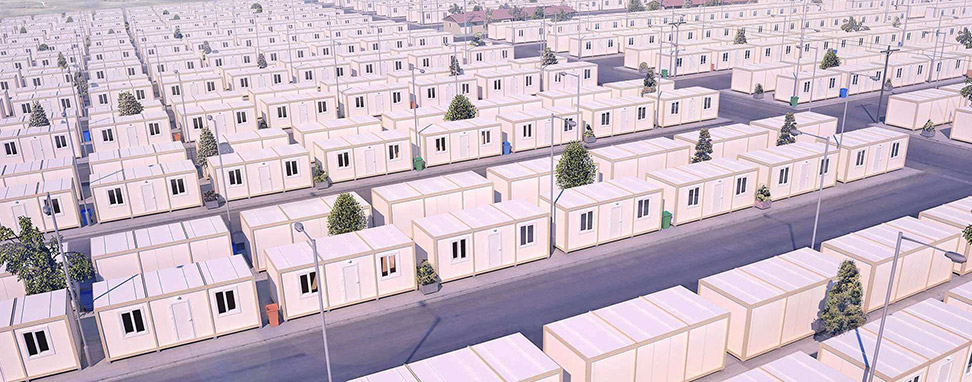With the acceleration of urbanization and the continuous rise in housing costs, traditional housing faces many challenges such as tight space, long construction period and high cost. In this context, a new type of housing form - expandable container housing is gradually entering the public's field of vision and becoming an ideal housing solution that integrates functionality, convenience and sustainability.
Convenient installation and rapid deployment
Expandable container housing can achieve "integrated transportation and on-site deployment", with a very short cycle from factory to occupancy, and does not require a complicated construction process. Its rapid construction capability is particularly suitable for emergency resettlement, temporary residence or tourist camps.
Flexible space design
The expandable structure allows it to maintain a small size during transportation and have a more spacious interior space when in use. Users can choose a single room, double room or even a multi-room connected structure according to their needs to create a personalized living space.

Green and recyclable
Most container houses are built with steel and environmentally friendly interior materials, which can be recycled many times, reduce construction waste, and meet the contemporary environmental protection concept of energy conservation and emission reduction.
Good safety performance
The steel structure of the container itself has a high wind and earthquake resistance and is suitable for a variety of natural environments. In addition, high-quality insulation, ventilation systems and fire prevention also ensure living safety and comfort.
Cost-effective
Compared with traditional houses or built-type mobile houses, expandable container houses are more competitive in price, especially suitable for users with limited budgets or for short-term projects.
Application scenarios are becoming more and more extensive
Family housing: For people who want to own low-cost houses, or for those who build their own houses in rural and suburban areas, expandable container houses are an excellent choice.
Tourist holiday homes: Due to their mobility and fast assembly characteristics, they are widely used in scenic spots, camps, etc. as special holiday accommodation.
Commercial office space: At construction sites and temporary project sites, companies can quickly deploy office space and easily demolish it after the project is completed.
Emergency disaster shelter: After natural disasters such as earthquakes and floods, expandable container houses can quickly provide shelters to solve the housing needs of a large number of people in a short period of time.
Overseas construction sites or military bases: easy to transport and quickly deploy, providing reliable housing for garrisons far away from cities.
With the development of intelligent manufacturing technology, the design of expandable container houses will be more humane and technological. For example, through configurations such as smart lighting, energy systems, and solar power supply, the integration of smart home functions can be achieved, making it not only suitable for temporary needs, but also for long-term residence.
The policy-level support for green buildings and sustainable development also provides favorable soil for the development of container housing. More and more designers and companies are investing in this field, pushing it towards higher quality, stronger functions, and more beautiful appearance.
Expandable container housing is not only an innovation in architectural form, but also a deep response to modern people's lifestyle and space use concepts. In today's world of tight land resources, prominent environmental problems, and growing personalized needs, it provides a housing solution that is both pragmatic and imaginative, and is gradually becoming a strong candidate for future housing.








